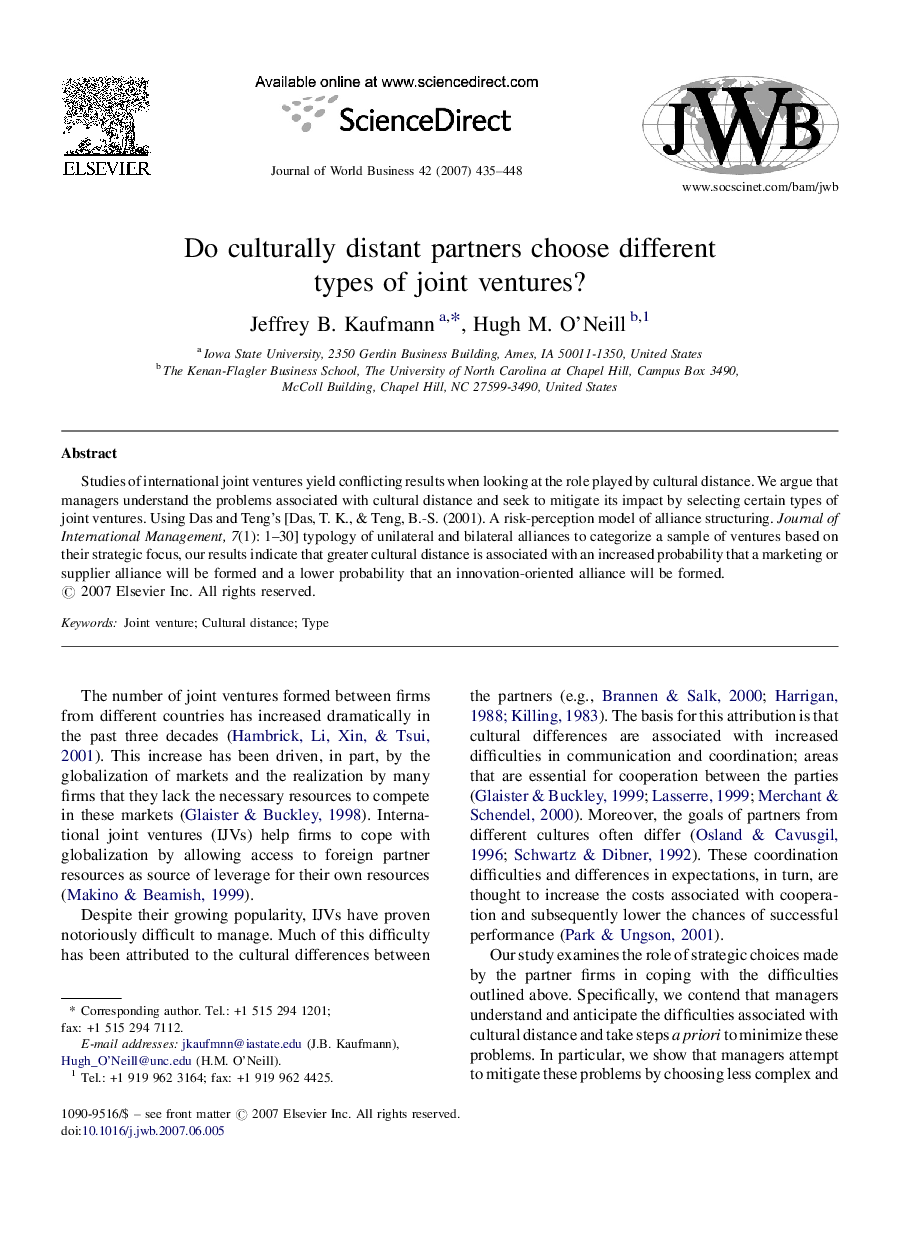| Article ID | Journal | Published Year | Pages | File Type |
|---|---|---|---|---|
| 1003407 | Journal of World Business | 2007 | 14 Pages |
Studies of international joint ventures yield conflicting results when looking at the role played by cultural distance. We argue that managers understand the problems associated with cultural distance and seek to mitigate its impact by selecting certain types of joint ventures. Using Das and Teng's [Das, T. K., & Teng, B.-S. (2001). A risk-perception model of alliance structuring. Journal of International Management,7(1): 1–30] typology of unilateral and bilateral alliances to categorize a sample of ventures based on their strategic focus, our results indicate that greater cultural distance is associated with an increased probability that a marketing or supplier alliance will be formed and a lower probability that an innovation-oriented alliance will be formed.
